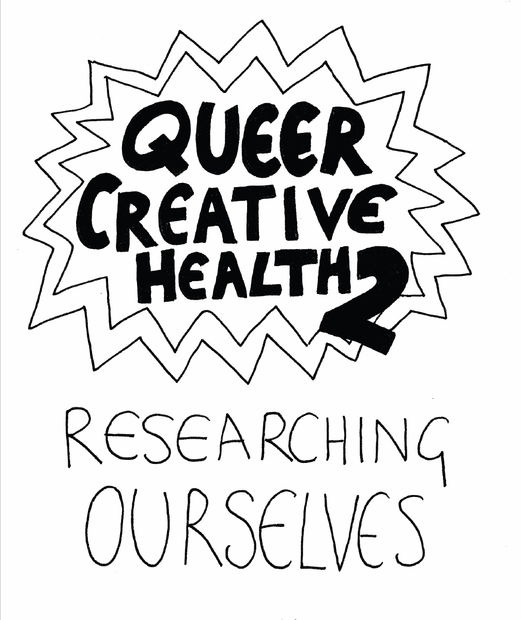-
Without social spaces to find one another and become who we need to be, our health and well-being as LGBTQ+ people is put at risk. Queer creative health rejects normative understandings of health, acknowledging how our health is intimately bound up with the health of others - near and far - in communities, social structures and institutions.
We cultivate collective health through a range of programmes that we co-develop with diverse partners and community groups. As part of this holistic and systemic mission, we offer saf(er) spaces for sharing that are able to address difficult feelings, such as grief and shame, as well as promote pride and joy.
QUEERCIRCLE developed the idea of ‘queering creative health’ through a zine devised by MJ Barker and a report written by Yasmin Jiang (University College London). Our findings align with broader health justice movements that see health not as an individual problem - remedied by medical institutions once we become sick - but as something that should be proactively embedded at structural and community levels.
The Queering Creative Health Network meets three times a year to share and discuss topics relating to health and well-being as they specifically relate to LGBTQ+ communities. To find out more, contact frances@queercircle.org -
We spoke to all sorts of people at the outset of developing our creative health programme - artists, researchers, occupational therapists, mental health activists - to explore not just the content of potential programmes, but also how they run- ie what kinds of creative methods make for the best fit. We found that while zine-making allows for narratives and images to take improvised, anarchic, DIY form, somatic practices use the body as a site of knowledge, offering space for potential change. Here are some examples of how these methods have developed:
-
-

ZINES
The zine has long provided a messy, DIY format through which many different types of queer experience have been able to find form.
-

SOMATICS
We are born into bodyminds which work in diverse ways. Somatic practices help us to listen to what our bodies are telling us and work with embodied knowledges they hold.
-
-
Over the last year, we explored a couple of themes in depth: grief and care. Considering grief, we reflected upon how LGBTQ+ communities can best acknowledge and express feelings of grief. In the theme of care, we asked the question ‘who is a queer carer?’ We continue to work with regular partners invested in these areas, such as local carer’s centres, as well as making space for bespoke queer spaces and conversations within the healthcare sector more broadly.
-
-

Queer Carers
Who is described as a ‘carer’ and how does being LGBTQ+ influence perceptions of this role? How do we navigate institutional systems of care that don’t recognise our chosen family relationships? This programme poses these questions and others, also offering tangible tools to deal with the responsibilities of caring through an online monthly support forum.
-

Grief
As well as celebrating pride and joy, QUEERCIRCLE’s programmes acknowledge feelings of grief and loss, both as individuals and as community. Our communities have often been at the forefront of bringing creativity to cultural grieving and memorialisation. We bring awareness of particular LGBTQ+ histories of loss, such as those many of us carry from the AIDS health crisis.
-
-





